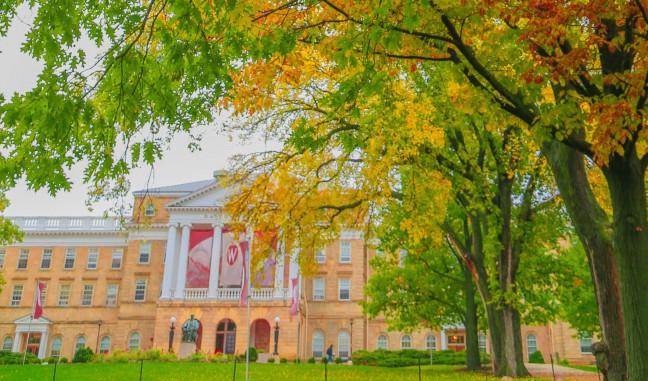University of Wisconsin’s System has a cap on how many out-of-state students can enroll each year. The cap is set at 27.5 percent.
But when the UW System’s governing body passed a $10,000 tuition increase for out-of-state students over the next four years at their April meeting, experts say raising the cap on out-of-state acceptances is likely to be next.
UW administrators have not been so forward. They overwhelmingly have said Wisconsin residents are their first commitment.
But how the System will compensate for the nearly $300 million in proposed cuts to the UW System in Gov. Scott Walker’s biennial budget proposal is still in limbo.
If the state’s priorities remain in K-12 education and transportation, UW-Madison Chancellor Rebecca Blank could likely request that the Board of Regents raise the current 27.5 percent cap on non-resident student enrollment at their July meeting, Noel Radomski, director of the Wisconsin Center for the Advancement of Postsecondary Education, said.
The current cap covers all UW System schools, but mainly applies to UW-Madison because of its higher rate of non-resident enrollment. Minnesota residents do not count as out-of-state students under this quota.
For the last couple of years, admission rates for Wisconsin residents have been more than 70 percent, according to Steve Hahn, the vice provost for enrollment management.
Raising the current cap has not traditionally come up in the chancellor’s announcements as an option yet, however, Radomski argued since tuition rates for out-of-state students will soon see a dramatic increase, the university now has a reason to increase non-resident enrollment.
“There is a market demand,” Radomski said. “Therefore, there will be a financial incentive to increase the number and percentage of non-resident international students because they bring in more money.”
Nicholas Hillman, UW professor of educational leadership and policy analysis, said while he understands the university increased non-resident tuition because those applicants tend to be wealthier, he echoed concerns their increased enrollment could reduce the acceptance rate for Wisconsin residents.
Currently, 59 percent of enrolled UW-Madison students come from Wisconsin. The percentage of enrolled first generation students, which currently stands at 16.8 percent in 2014, has already declined from 19.5 percent in 2005, according to a University of Wisconsin report.
However, Radomski said a hypothetical increase of out-of-state enrollment would lead to an influx of less qualified non-resident and international students to UW and a decline in native Wisconsinites and first-generation students.
However, Vice Provost for Finance and Administration Darrell Bazzell said Blank is not committed to making any decisions regarding the enrollment cap and that she is only obligated to reflect on whether she has enough resources to manage the budget situation.
Hahn said if the Board of Regents increased the cap at all, it would be a minor adjustment.
“We are still overwhelmingly, via our enrollment, our mission and position in the UW System, a Wisconsin serving institution,” Hahn said.
However, Radomski said tuition increases for non-resident students will already cause the most talented individuals to go elsewhere, which could cause faculty to leave with them due to a lack of qualified students, eventually lowering our prestige compared to our peers.
Regarding concerns over a decline in applicant quality, Hahn said a hypothetical increase in the cap on non-resident students would not lead to an influx in underqualified students, specifically because the university in recent years has seen a significant increase of high quality non-resident applicants.
“I do not have any concerns about the quality of the class if we raised the resident rate in the future,” he said.

















